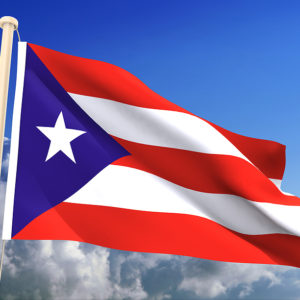For an alternate viewpoint, see “Point: Ending Colonialism in Puerto Rico — a Call for Civil Rights.”
Every so often, whether Puerto Rico should be granted statehood becomes a hot topic, especially inside the Beltway. Historically, the people of Puerto Rico have generally voted against becoming the 51st state. However, that has not stopped many from advocating for Puerto Rican statehood, which would assuredly result in two more Democratic senators and a handful of new Democratic representatives.
In 1898, after the Spanish-American War, Puerto Rico was officially designated as an “unincorporated territory,” which matters because unincorporated territories, unlike incorporated territories, are not considered to become potential states in the future. Alaska and Hawaii, on the other hand, were granted the status of incorporated territories in 1912 and 1898, respectively. As such, both were granted statehood in 1959.
More important, it would be unwise to make Puerto Rico the 51st state because the island is an economic basket case. Puerto Rico is drowning in more than $140 billion of debt. If Puerto Rico were to become a state, that $140 billion would be absorbed by the U.S. government and added to the $34.5 trillion national debt. The United States spends more than $1 trillion yearly on interest payments on the national debt, more than we spend on the entire military budget. We cannot afford any more debt.
Unfortunately, the average per-capita income in Puerto Rico is $24,560. This is significantly lower than the per-capita income in the United States ($65,423) and well below the per-capita income of Mississippi ($48,110), which ranks as the poorest state in the nation.
So, if Puerto Rico were granted statehood, the 3.2 million people living on the island would immediately become eligible for all federal social safety net benefits, such as the Supplemental Nutrition Assistance Program. This would add a huge new load to programs like SNAP, which are already overburdened and skyrocketing in cost.
Aside from the economic implications, there are many social and political problems associated with Puerto Rican statehood. For instance, according to recent estimates, only 20 percent of Puerto Ricans speak English, and most identify more with their Puerto Rican heritage than their American heritage. Many argue this is also a primary reason so many Puerto Ricans prefer independence rather than becoming a U.S. state.
On the political front, several potential pitfalls associated with Puerto Rican statehood could create even more problems in the future. First and foremost, if Puerto Rico were to become a state, it would incentivize other territories and the District of Columbia to pursue statehood. This would further upset the delicate balance of political power because it would likely result in total Democratic control of Congress and the executive branch.
As then-Senate Majority Leader Mitch McConnell said in 2019, when the issue of D.C. and Puerto Rico statehood reached an apex in the Democratic-controlled House of Representatives, “They plan to make the District of Columbia a state — that’d give them two new Democratic senators — Puerto Rico a state, that would give them two more new Democratic senators. So, this is full-bore socialism on the march in the House. And yeah, as long as I’m the majority leader of the Senate, none of that stuff is going anywhere.”
McConnell is right. If Puerto Rico became a state, it would likely result in decades of Democratic political control.
We also must recognize that granting statehood is an arduous process that necessitates several steps, including a referendum among the people, passage by both houses of Congress, and the signature of the president. Given that Puerto Rico is not an incorporated territory, the people of Puerto Rico seem mostly apathetic on statehood, Congress is unlikely to agree on this issue anytime soon, and there is no guarantee of presidential authorization, it looks like the entire notion of Puerto Rican statehood in the not-too-distant future will simply have to remain a pipe dream.

